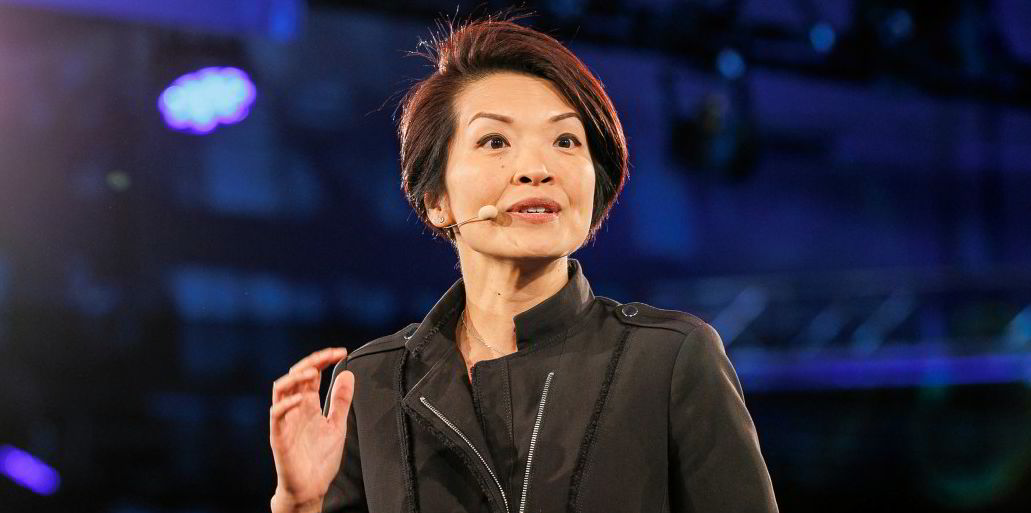You probably need a PhD to understand some of Lynn Loo’s postings on X, the social media platform previously known as Twitter.
Fortunately, her conversion to LinkedIn — “because that is what shipping is mostly on” — provides a far easier read for the more academically challenged among us.
As a LinkedIn Top Voice, Loo has grown her followers from several hundred to more than 23,500 since becoming chief executive of the Global Centre for Maritime Decarbonisation in Singapore.

She interweaves personal stories with hard numbers and scientific facts (along with a healthy dose of emojis) to present a balanced, pragmatic view of the challenges and opportunities of maritime decarbonisation.
In two short years, Loo has taken the non-profit centre from an initial six founding partners to more than 100 industry participants, including some of the biggest names in shipping from Europe and Asia.
Asked how she got involved with the industry, Loo likes to say that she chanced upon shipping and, likewise, shipping took a chance on her.
Her sabbatical from her job as a professor at Princeton University in the US took an unexpected turn when she found herself on an extended stay in Singapore during the Covid-19 pandemic.
It was during this time that she was invited to be a part of the International Advisory Panel for Maritime Decarbonisation.
At the recommendation of this panel, the decarbonisation centre was founded by the Maritime & Port Authority of Singapore with the backing of BHP, BW Group, DNV Foundation, Eastern Pacific Shipping, Ocean Network Express and Seatrium. Loo was asked to lead it.
What inspired her to join the industry was its global nature, she told TradeWinds in an interview not long after taking up the post.
“If there is a chance to pass a global carbon policy, it would be in a global industry such as shipping. It was that promise that something big can happen,” she said.
Under her leadership, the centre has garnered broad ecosystem support globally for its initiatives. It has launched pilots and trials to close technical and operational gaps in deploying ammonia as a marine fuel, building resilience in drop-in green fuels supply chains and demonstrating shipboard carbon capture and articulating the value chain of captured CO2.
Asked how her academic background feeds into the work she is doing at the decarbonisation centre, she said in an interview with the International Chamber of Shipping that she likes to think she is bringing some “academic rigour” to the table.
“[I’m] making sure we’re asking the right questions and that our hypothesis is really addressing the pain points of the sector,” she said.
She highlighted the different issues faced by smaller shipowners who make up the bulk of the international fleet versus those of the large shipowners.
“In our recent global maritime decarbonisation industry survey which we completed with Boston Consulting Group, we found that smaller shipowners lack context and understanding of the technologies available to them to help them reduce their greenhouse gas emissions,” she told the ICS.
“This is in contrast to the large shipowners who are already adopting solutions considered ‘low-hanging fruits’ and are more concerned with technology maturity and price gaps. This shows us how we need to differentiate our interventions.”

But Loo’s involvement with the decarbonisation centre is only half of her story.
In addition to her work in maritime decarbonisation, the Malaysian-born chemical engineer and professor of chemical & biological engineering at Princeton leads a group of graduate students and postdocs in her laboratory at the Ivy League research university where the team is working to develop high-performance, stable perovskite solar cells.
These cells absorb light of complementary wavelengths compared with conventional silicon solar cells, so marrying the two technologies together can increase power generation over the same footprint. She and her team currently hold the record for the most stable perovskite solar cells.
Loo is also a co-founder of Andluca Technologies, a start-up that is developing visibly transparent solar cells and smart window combinations.
An out-birth of research from her laboratories, these technologies are said to have the potential to reduce building energy consumption and increase occupant comfort.




